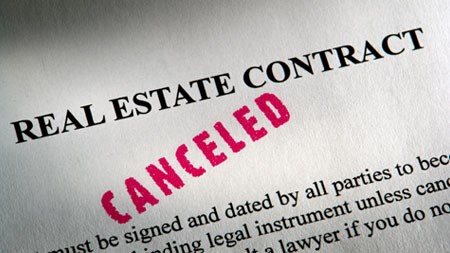A sales agreement is a legally binding document and anyone who attempts to back out of a property purchase for spurious reasons may well land up in hot water.
One of the most common ways a buyer will attempt to cancel the deal is by saying that his bond finance application has been rejected by the bank. Although banks have admittedly become far stickier and a great number of bonds are rejected, the seller has every right to ask the bank for proof that they are not willing to finance the deal.
Some buyers change their minds shortly after signing the deal and do not apply for bond finance at all. Again, it is pretty easy for a seller to catch the buyer out in this scenario. Other buyers are more honest and just state that they are no longer interested in the property and want to cancel the deal.
Then there are the people who believe that the Consumer Protection Act provides them with a certain level of protection and that they can cancel a sale based on the ‘cooling off’ period. While the law does well allow for a cooling off period for property priced under R250 000, it is important to remember that this does not apply to property priced above that mark.
An article on the Estate Agency Affairs Board website clearly indicates the ins and outs of this so-called cooling off period:
“In terms of the Act, a Purchaser that purchases a property as a result of direct marketing has the right to cancel the sale within five business days, the “cooling-off” period. This applies only to sales that result from direct marketing. The “cooling-off” period does not apply to sales that result from any other form of marketing such as show houses and conventional print advertising. Nor does it apply to any purchase made by a client that the agent is already working with. Transactions that arise from these forms of marketing do not fall within the ambit of the Consumer Protection Act.
“The start of this 5-day “cooling-off” period is the date of delivery of the goods to the Purchaser. In Real Estate terms this means, not the date of signature of the contract, but the date of transfer of the property into the Buyer’s name. Transfer generally takes place three to six months after signature of the Offer to Purchase. Obviously cancellation after a delay of these proportions will be problematic for all the parties involved. However, this provision is as yet untested in law and it remains to be seen how it will be interpreted by the courts.
“In South African Property Law, in terms of Section 29a of the Alienation of Land Act, property transactions of less than R250 000 are subject to a “cooling-off" period of five days, calculated from the date of signature of the Offer to Purchase. This provision remains in place and is not affected by the new Act.”
Purchasing property is always going to be a major issue and a buying decision should never be taken lightly. An offer to purchase is transformed into a sales agreement the second the seller signs the document. Signing numerous offers to purchase on a number of different properties in the hope that one of the sellers takes the bait is going to come back to bite.
In a boom market, when buyers are literally bashing down doors in an effort to buy a home, a seller may well agree to let the buyer off the hook, knowing that another deal will probably be the pipeline very shortly. However, as things currently stand, buyers are awfully thin on the ground and most sellers are going to force the issue and be far less accommodating towards someone who has simply changed their mind.





